9 Times the Royal Family Faced Health Crises and What They Shared with the Public
The British royal family's unofficial motto has long been "never complain, never explain" — but occasionally, they have given a glimpse into their personal health experiences
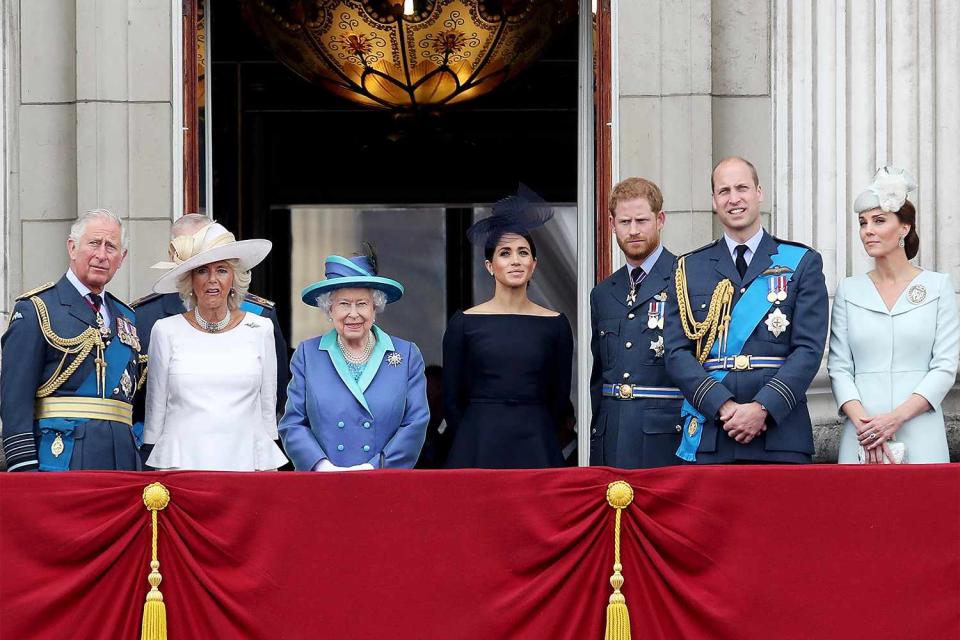
Chris Jackson/Getty
The British Royal Family in 2018The British royal family famously keeps their personal crises under wraps, living by the unofficial motto "never complain, never explain." But occasionally, they have given the public a glimpse of their personal lives by revealing a health battle they were facing.
On March 22, Kate Middleton revealed she was undergoing preventative chemotherapy after doctors found cancer following a "planned abdominal surgery" back in January.
In addition to Princess Kate, look back at the other rare times the royal family has disclosed information about their health.
Kate Middleton's Cancer Diagnosis

BBC Studios
Kate Middleton in a video announcing her cancer diagnosis on March 22.When her absence from the public eye after abdominal surgery triggered global speculation about her whereabouts, Kate Middleton revealed she was undergoing cancer treatment in a personal video posted to Instagram on March 22.
"In January, I underwent major abdominal surgery in London and at the time, it was thought that my condition was non-cancerous," the Princess of Wales, 42, began. "The surgery was successful. However, tests after the operation found cancer had been present. My medical team therefore advised that I should undergo a course of preventative chemotherapy and I am now in the early stages of that treatment."
The mother of three also revealed that she needed time to process the news, both for herself and her children. “This of course came as a huge shock, and William and I have been doing everything we can to process and manage this privately for the sake of our young family. As you can imagine, this has taken time."
King Charles' Cancer Diagnosis
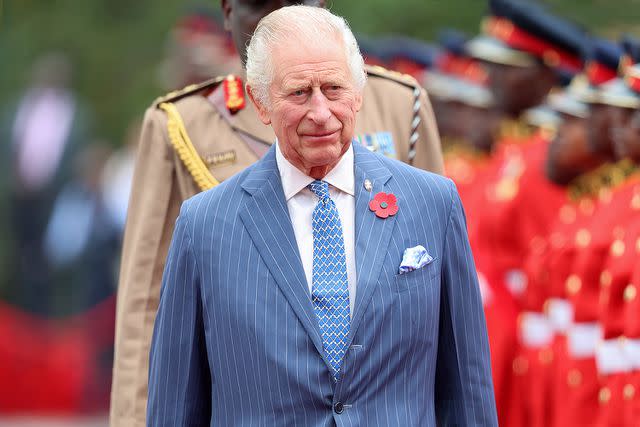
Chris Jackson/Getty
King Charles IIIA little more than a month before Kate opened up about her diagnosis, the palace revealed that her father-in-law, King Charles, 75, had been diagnosed with an unidentified type of cancer.
He had previously been treated for an enlarged prostate early in the year and underwent surgery in January.
"During The King's recent hospital procedure for benign prostate enlargement, a separate issue of concern was noted. Subsequent diagnostic tests have identified a form of cancer," the Buckingham Palace wrote in a statement released on Feb. 5.
"His Majesty has today commenced a schedule of regular treatments, during which time he has been advised by doctors to postpone public-facing duties. Throughout this period, His Majesty will continue to undertake State business and official paperwork as usual," the statement continued before thanking the medical staff for their "swift intervention."
Sarah Ferguson's Skin Cancer Diagnosis

Michael Loccisano/Getty Images
Sarah Ferguson, Duchess of YorkAlso in January 2024, Sarah Ferguson announced she had been diagnosed with skin cancer, just weeks after sharing that she had beaten breast cancer several weeks before.
“Following her diagnosis with an early form of breast cancer this summer, Sarah, Duchess of York has now been diagnosed with malignant melanoma,” said a spokesperson for the 64-year-old.
They also revealed the Duchess of York had several moles removed and analyzed by a dermatologist while she was undergoing reconstructive surgery following her mastectomy, which is when one of the moles was found to be cancerous.
“The Duchess wants to thank the entire medical team which has supported her, particularly her dermatologist whose vigilance ensured the illness was detected when it was,” the representative added. “She believes her experience underlines the importance of checking the size, shape, color and texture and emergence of new moles that can be a sign of melanoma."
Meghan Markle's Mental Health Crisis

In her interview with Oprah in 2021, Meghan Markle revealed that her difficulty adjusting to life within the royal family caused her to struggle with her mental health, to the extent that she experienced suicidal thoughts.
"I was ashamed to say it at the time and ashamed to have to admit it to Harry. But I knew that if I didn't say it, then I would do it," she told Oprah Winfrey in March 2021. "I just didn't want to be alive anymore.
"That was a clear and real and frightening and constant thought," she said.
"And that's I think so important for people to remember, is you have no idea what's going on for someone behind closed doors. No idea," she added later in the interview. "Even the people that smile and shine the brightest lights. You need to have compassion for what it actually potentially going on."
Queen Elizabeth's Health Issues
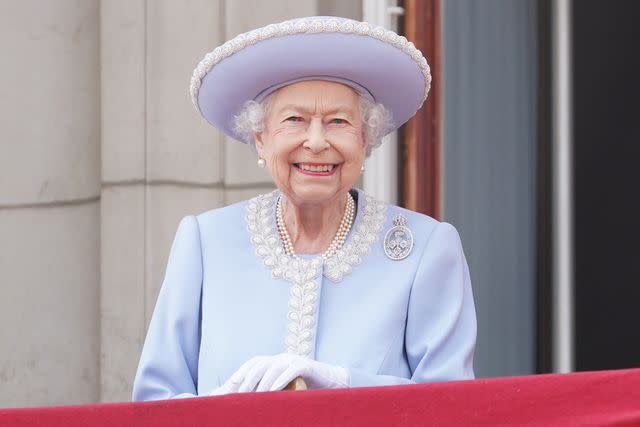
Jonathan Brady - WPA Pool/Getty Images
Queen Elizabeth IIBy the time Queen Elizabeth died at age 96 in 2022, she had gone through several health issues partially brought on by old age.
In October 2021, was spotted using a cane to assist her in walking. That same month, her doctors advised her to cancel a scheduled trip to Northern Ireland and she obliged, then spent a night in the hospital.
She then missed the Remembrance Day ceremony in November due to a sprained back and strayed from tradition by not spending Christmas with the rest of the royal family at Sandringham, partially due to the uptick in COVID-19 cases around the holidays.
In Feb. 2022, the Queen herself contracted COVID-19, and recovery was slow. She said in a video call with a COVID patient that "it does leave one feeling very tired and exhausted."
Her last act of duty came on Sept. 6, when she appointed Liz Truss as the new prime minister of the United Kingdom at Balmoral Castle in Scotland. She would cancel subsequent events per doctor's orders.
Queen Elizabeth II died on Sept. 8, 2022. She was 96.
Prince Philip's Health Issues
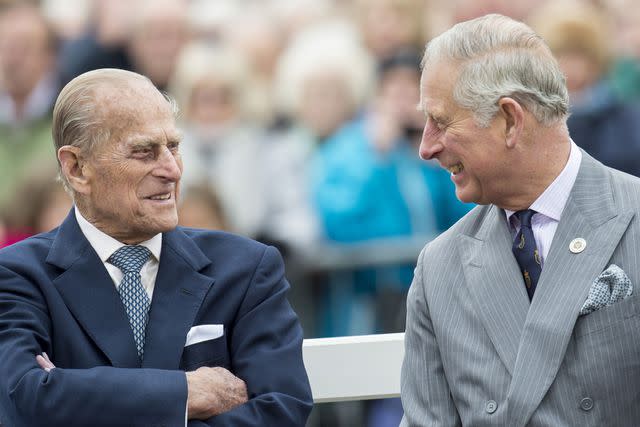
Prince Philip died weeks before his 100 birthday.
In the years leading up to his death, the Duke of Edinburgh also experienced several age-related health issues.
He officially retired from his duties in 2017 and gave up his driving license in 2019 following a car accident. That December, he was hospitalized for an undisclosed "pre-existing condition," according to the palace.
In Feb. 2021, he was admitted to King Edward VII Hospital to undergo a few days of observation and rest after reporting he had been "feeling unwell" and being "treated for an infection," the palace stated. He would go on to stay in the hospital for 28 days.
That March, he was transferred to St. Bartholomew's Hospital for an operation on what the palace said was a "pre-existing heart condition."
Following his recovery, Prince Philip returned to Windsor Castle, where he died "peacefully" on April 9.
Princes Margaret's Lung Operation
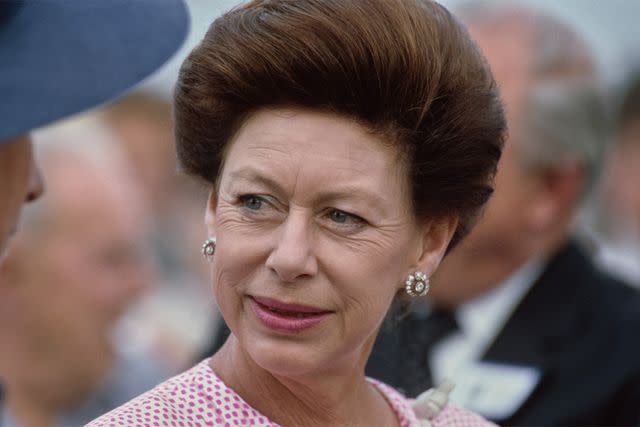
Tim Graham/Getty
Princess MargaretPrincess Margaret was known as the "Rebel Royal" because of her penchant for breaking the rules, but also because of her heavy smoking and drinking.
In 1985, Queen Elizabeth's only sibling underwent an operation to have part of her lung removed. Years later, in 1993, Margaret went to the hospital for pneumonia.
She then had two strokes — one while vacationing in Mustique in 1998 and another one in 2002. The latter proved to be fatal, and she died on Feb. 9 that year.
She was 71.
Princess Diana's Eating Disorder
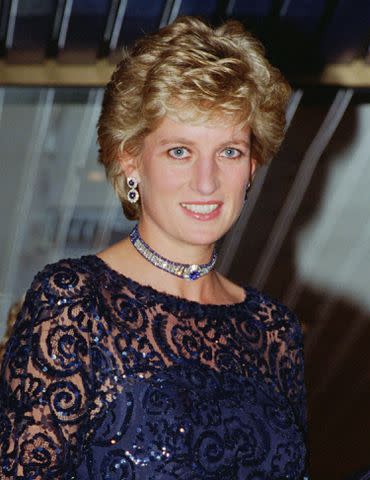
Tim Graham Photo Library via Getty Images
Princess DianaIt's no secret that Princess Diana's relationship with Charles was tumultuous and the former Princess of Wales was quite open about how being a part of the royal family took a toll on her mental health — including a bout with postpartum depression and bulimia.
"[I had] rampant bulimia, if you can have rampant bulimia, and just a feeling of being no good at anything and being useless and hopeless and failed in every direction," she told Martin Bashir in the infamous BBC 1 Panorama interview back in 1995.
"It was a symptom of what was going on in my marriage. I was crying out for help, but giving the wrong signals, and people were using my bulimia as a coat on a hanger. They decided that was the problem: Diana was unstable," she said, adding: "The cause was the situation where my husband and I had to keep everything together because we didn't want to disappoint the public, and yet obviously there was a lot of anxiety going on within our four walls."
King George VI's Lung Cancer
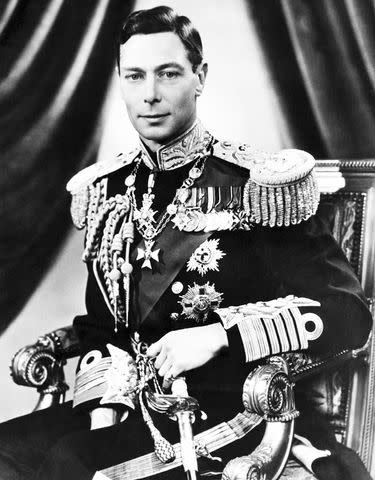
Underwood Archives/Getty
King George VIWhen King George VI had cancer in 1951, the palace not only hid the diagnosis from the public, they also hid it from the monarch himself. In September 1951, Queen Elizabeth's father underwent a pneumonectomy — removal of the lung — which the palace stated was due to "structural abnormalities."
His sudden death five months later was chalked up to a "coronary thrombosis" caused by his vascular disease, perThe Telegraph, though people have since speculated his lung cancer was the cause.
For more People news, make sure to sign up for our newsletter!
Read the original article on People.

 Yahoo News
Yahoo News 
